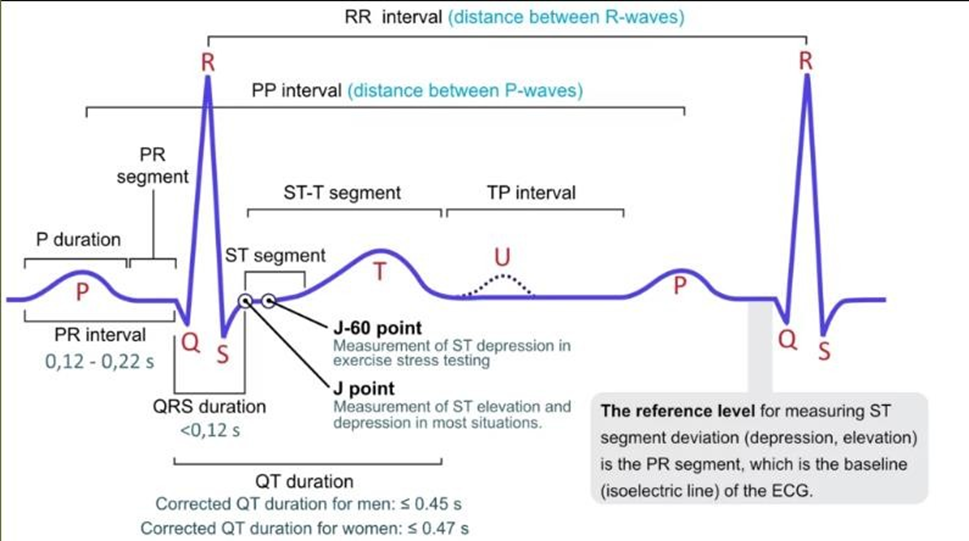A nurse is caring for a client who has an elevated potassium level and is on a cardiac monitor.
The nurse is aware that hyperkalemia may be associated with changes to the T-wave. On the graphic, point and click on the area of the electrocardiogram (ECG) that represents the T-wave. (Selectable areas, or "Hot Spots," can be found by moving your cursor over the artwork until the cursor changes appearance, usually into a hand. Click only on the Hot Spot that corresponds to your answer.)
The Correct Answer is "{\"xRanges\":[104.2578125,134.2578125],\"yRanges\":[114.30078125,144.30078125]}"

Nursing Test Bank
Naxlex Comprehensive Predictor Exams
Related Questions
Correct Answer is C
Explanation
A. Reports of joint pain: Joint pain is more indicative of musculoskeletal issues rather than chronic renal disease. While joint pain can occur in some types of kidney disease, progressive edema is a more specific symptom.
B. Increase in appetite: An increase in appetite is not typically associated with chronic renal disease. Instead, clients with kidney disease may experience a decrease in appetite due to various factors such as nausea, vomiting, and changes in taste.
C. Progressive edema: Progressive edema, especially in the lower extremities and around the eyes (periorbital edema), can be a significant indicator of declining kidney function. It results from fluid retention due to impaired kidney filtration.
D. Recent increase in thirst: While increased thirst can be a symptom of chronic renal disease, it is not as specific as progressive edema. Increased thirst may occur due to other conditions or factors such as diabetes mellitus or dehydration.
Correct Answer is C
Explanation
A. Instruct the client to avoid high-potassium foods: While important for long-term management, it is not the priority when the client is experiencing hyperkalemia, as immediate interventions are necessary to prevent complications.
B. Redraw the potassium to verify results: Redrawing the potassium may be necessary if there is concern about sample contamination or if the result is significantly different from what is expected. However, it is not the priority when the client is at risk of complications from hyperkalemia.
C. Check the client's blood pressure: This is the priority action because hyperkalemia can lead to cardiac dysrhythmias, including potentially life-threatening arrhythmias. Checking the blood pressure helps assess the client's cardiovascular status and any potential effects of hyperkalemia on cardiac function.
D. Obtain a serum sodium level: While monitoring electrolyte levels is important in ESRD, sodium levels are not the priority when the client is experiencing hyperkalemia. Monitoring potassium and managing its effects take precedence.
Whether you are a student looking to ace your exams or a practicing nurse seeking to enhance your expertise , our nursing education contents will empower you with the confidence and competence to make a difference in the lives of patients and become a respected leader in the healthcare field.
Visit Naxlex, invest in your future and unlock endless possibilities with our unparalleled nursing education contents today
Report Wrong Answer on the Current Question
Do you disagree with the answer? If yes, what is your expected answer? Explain.
Kindly be descriptive with the issue you are facing.
